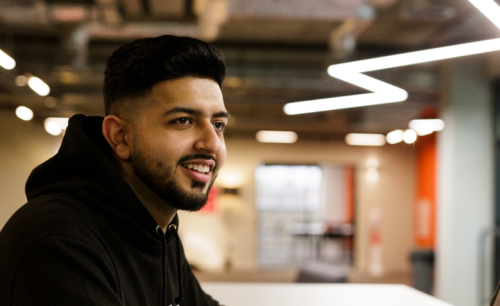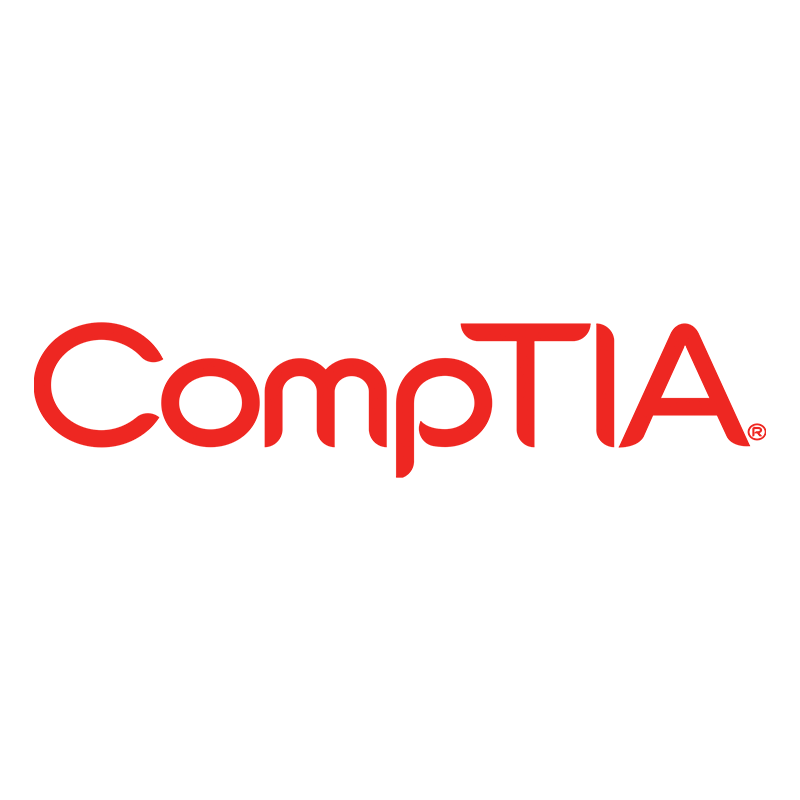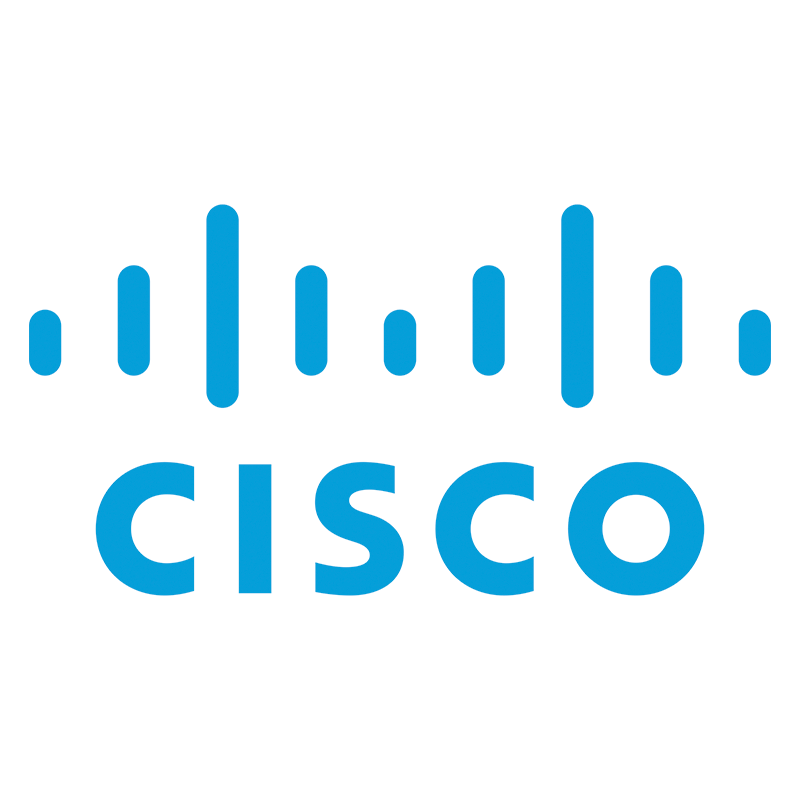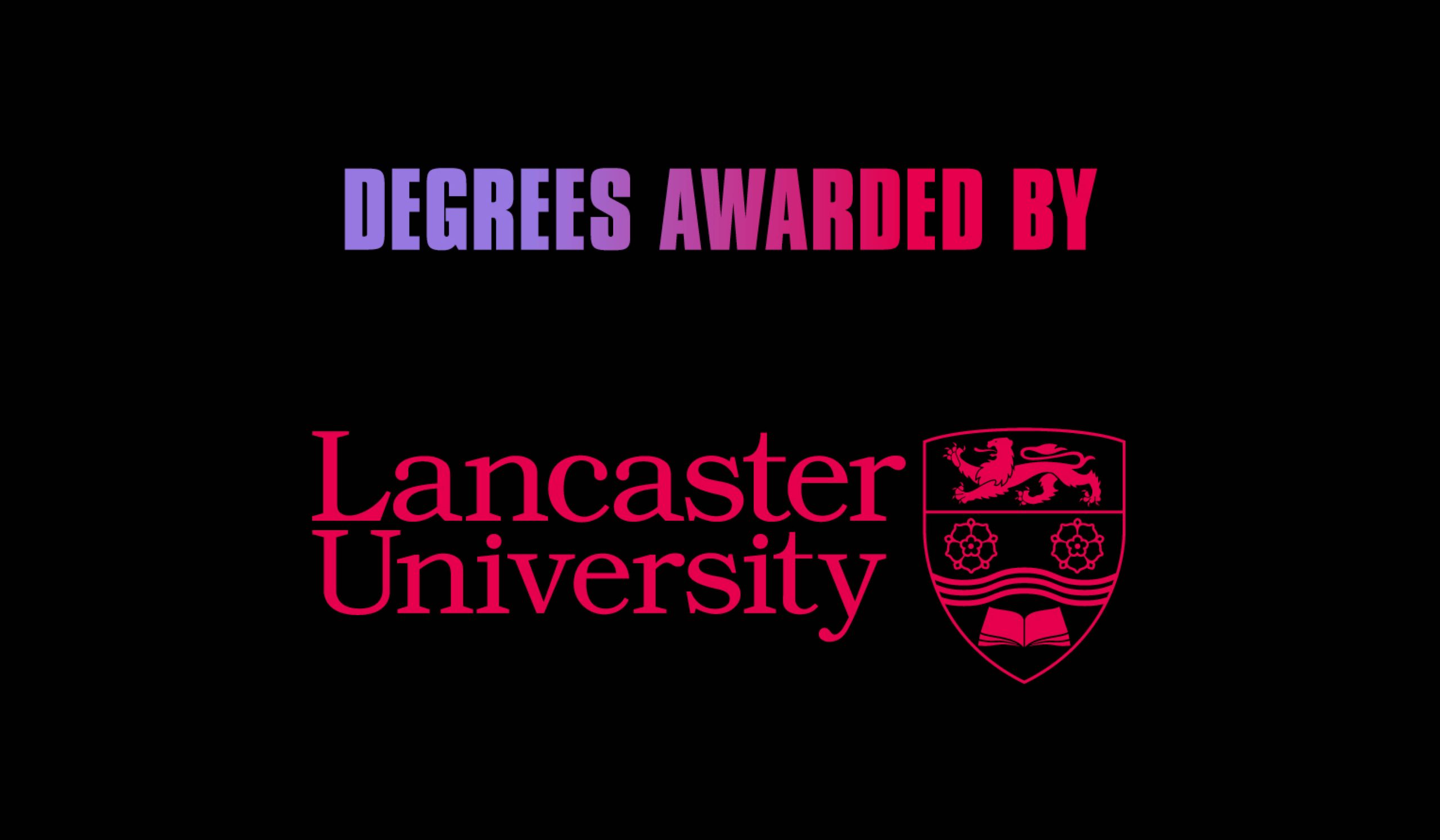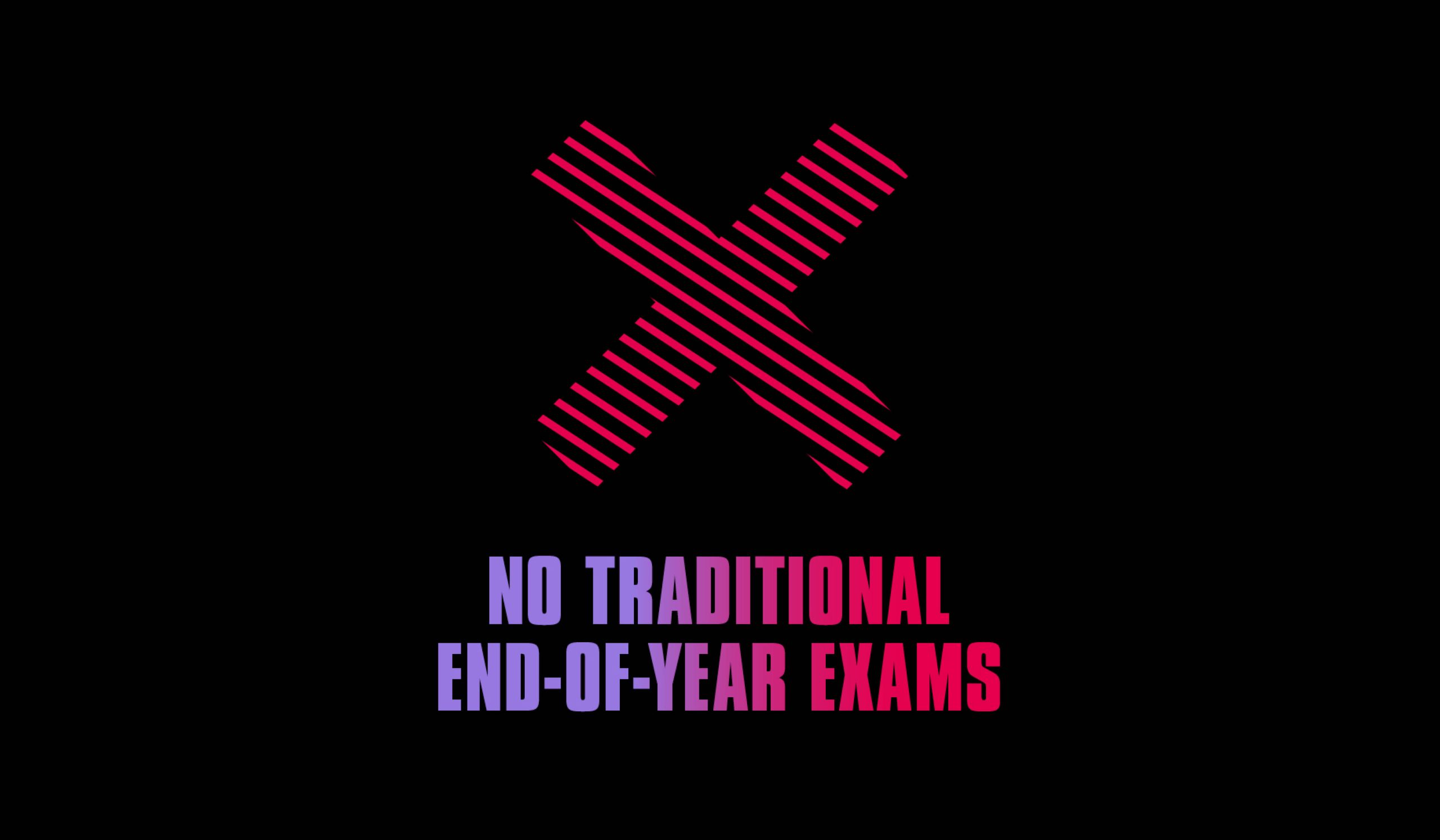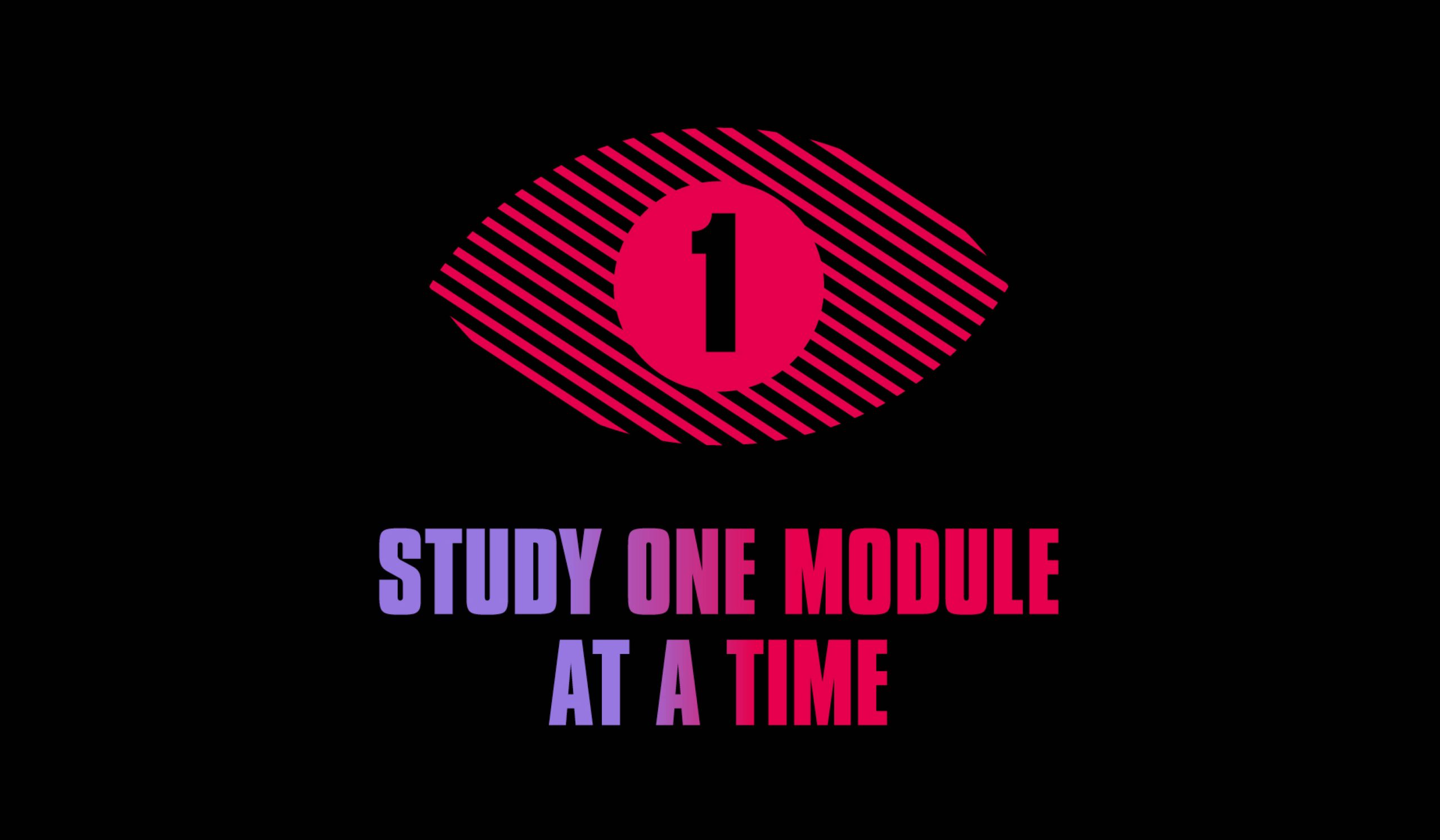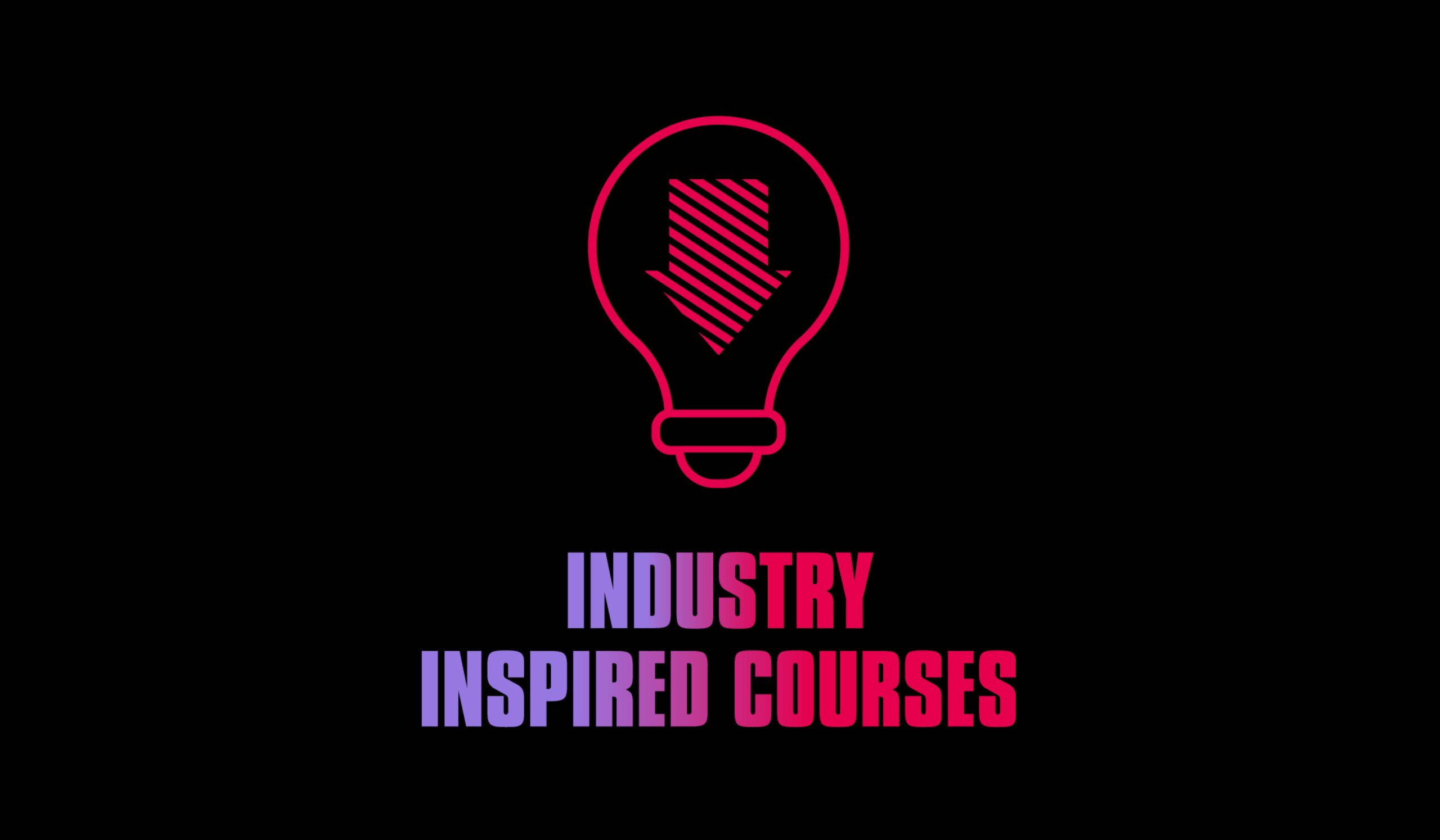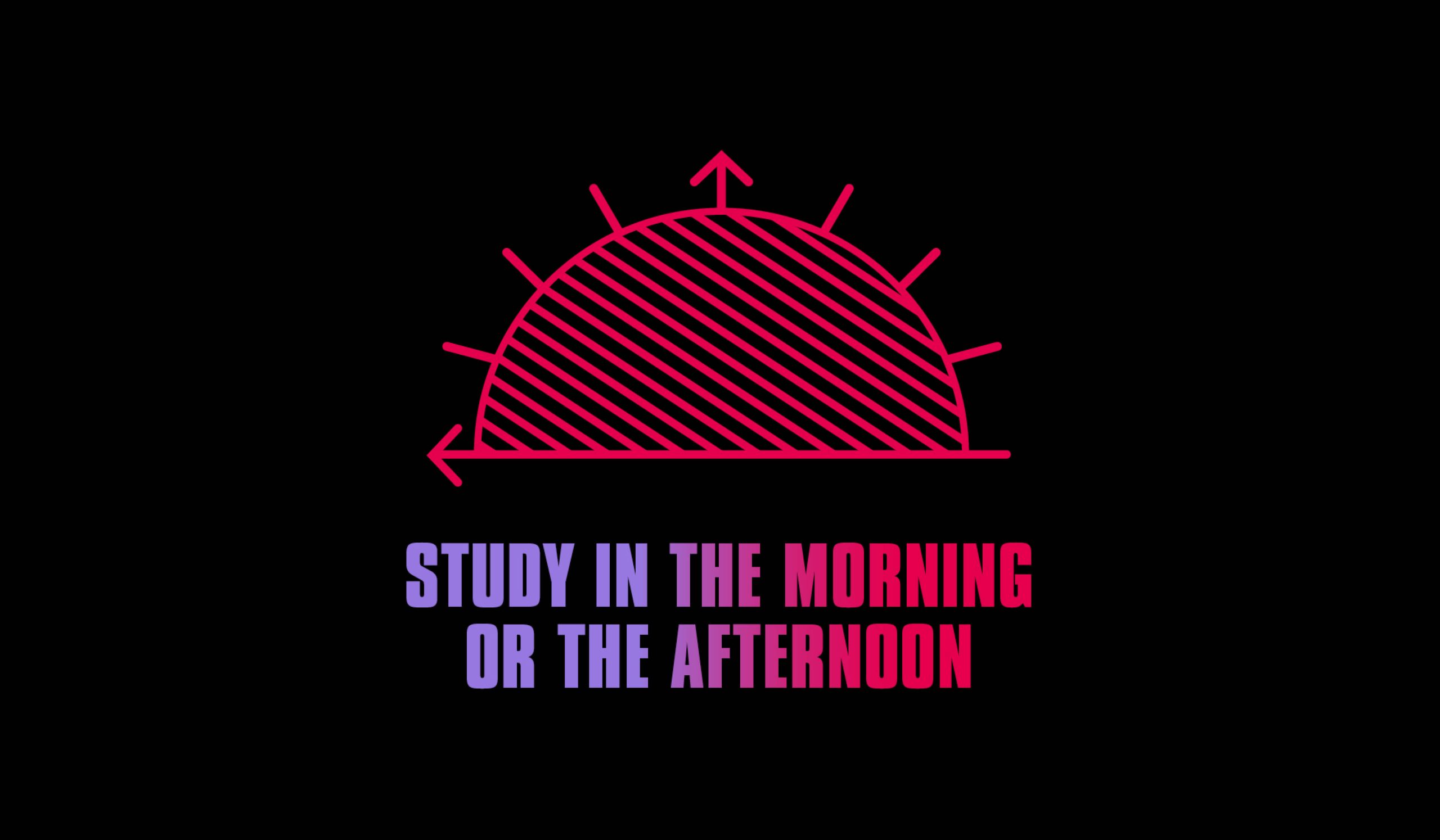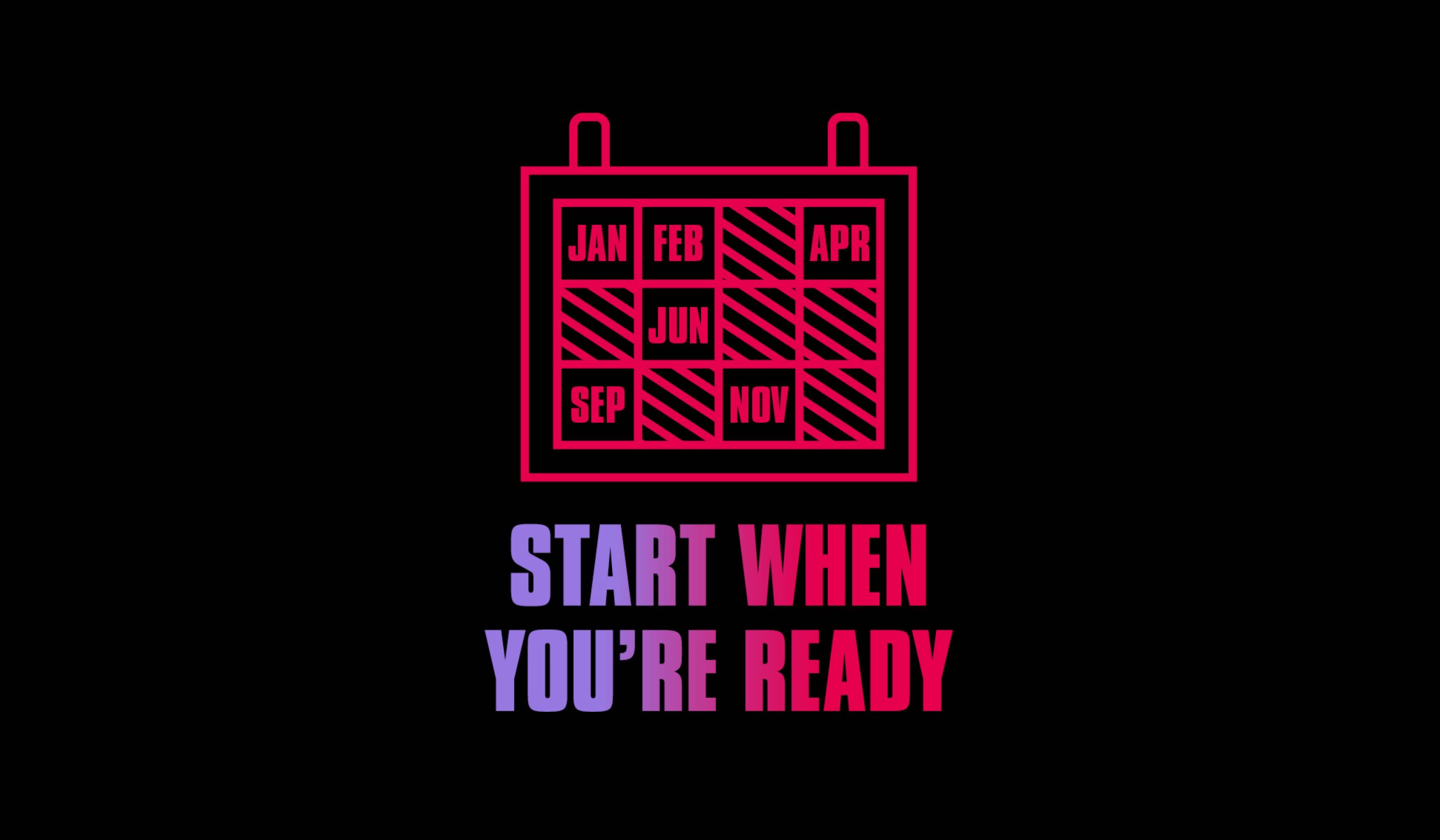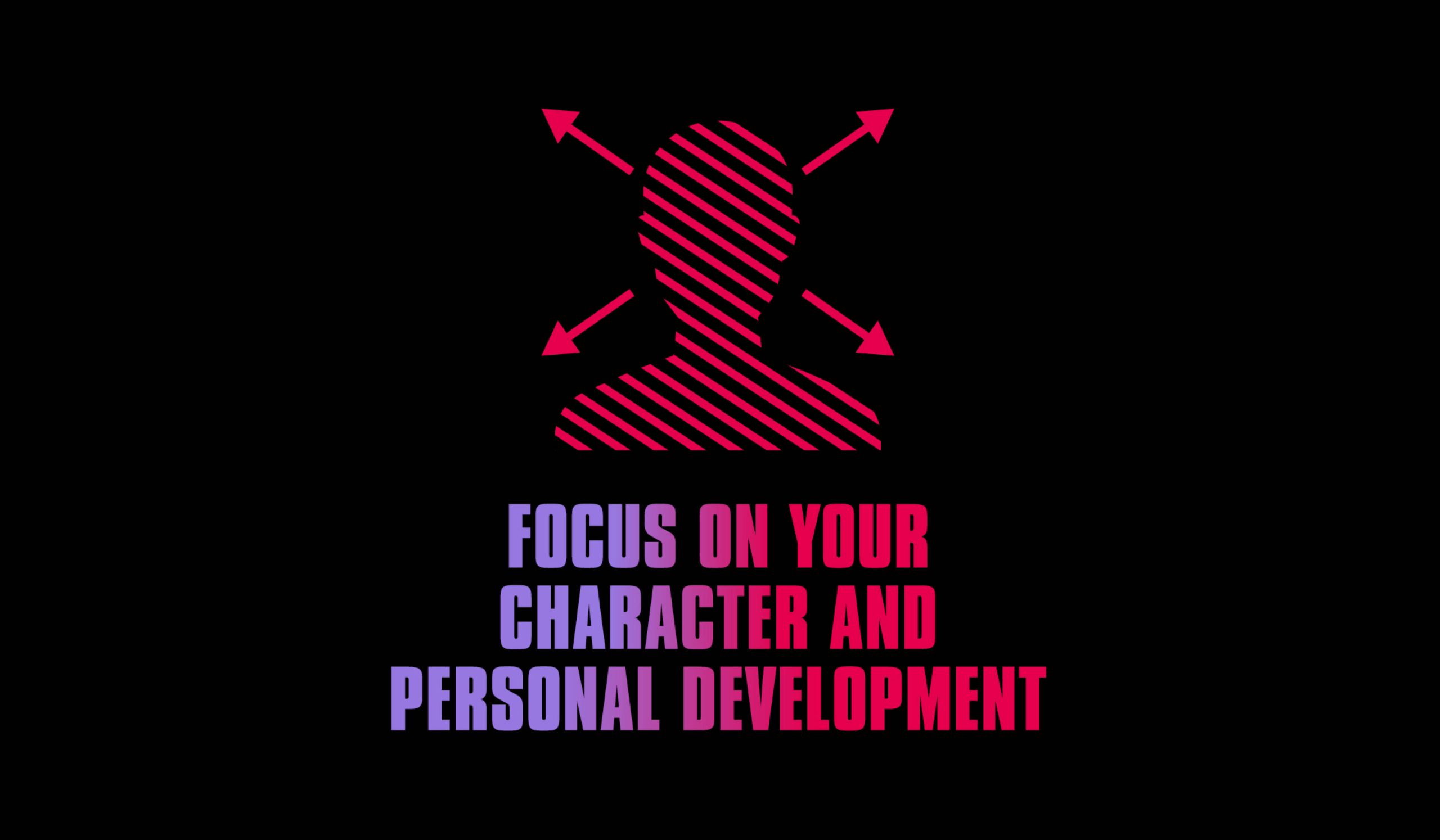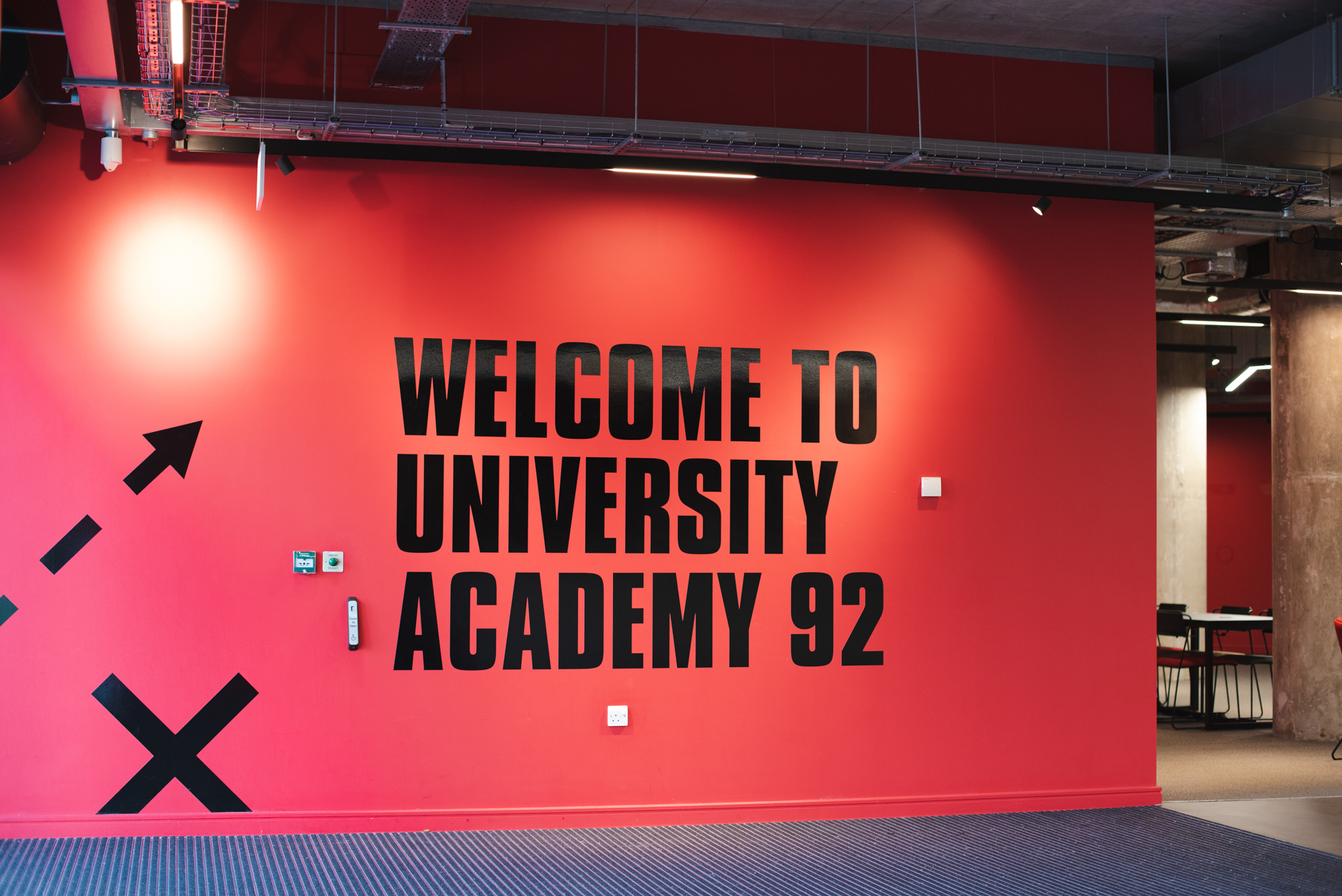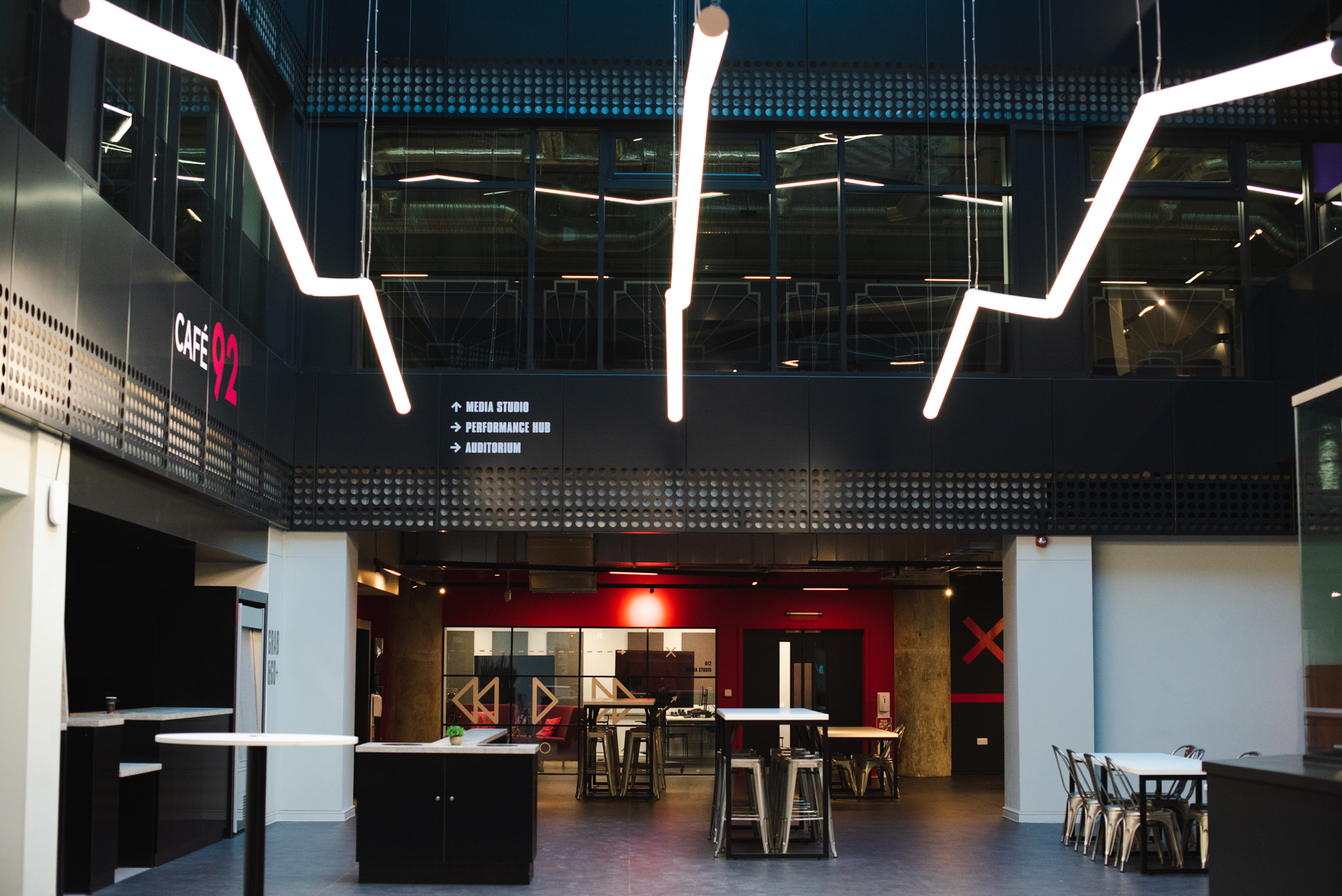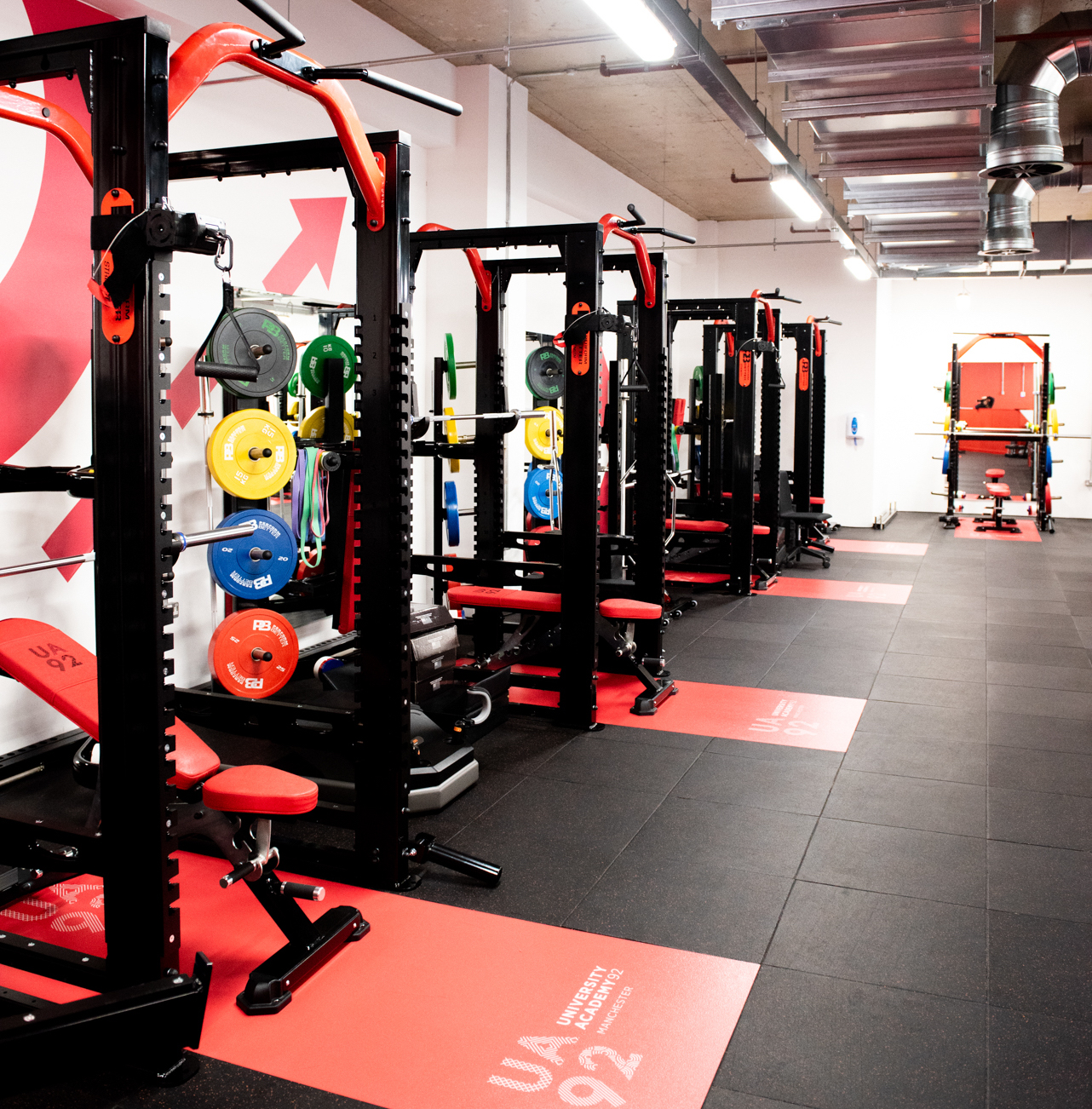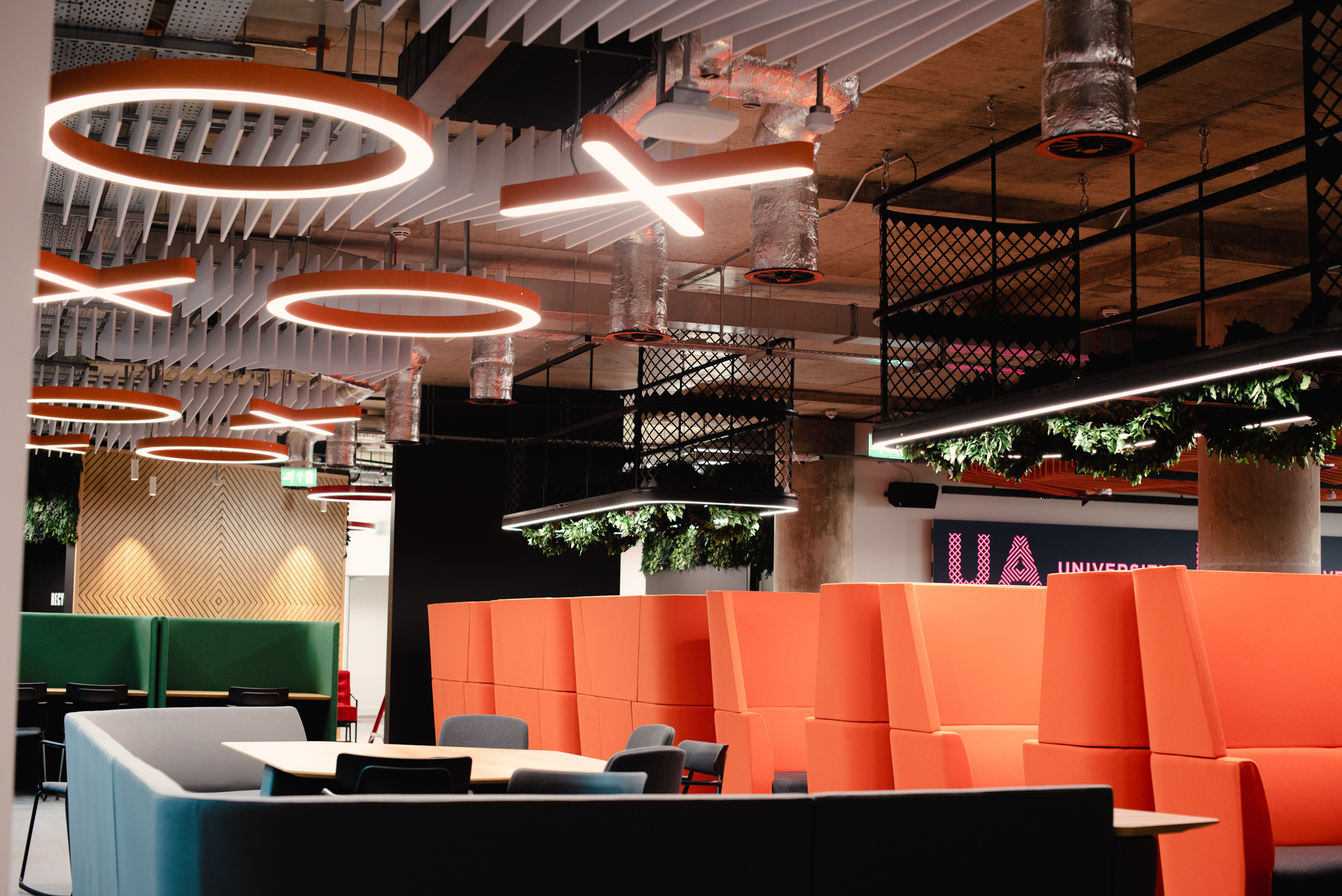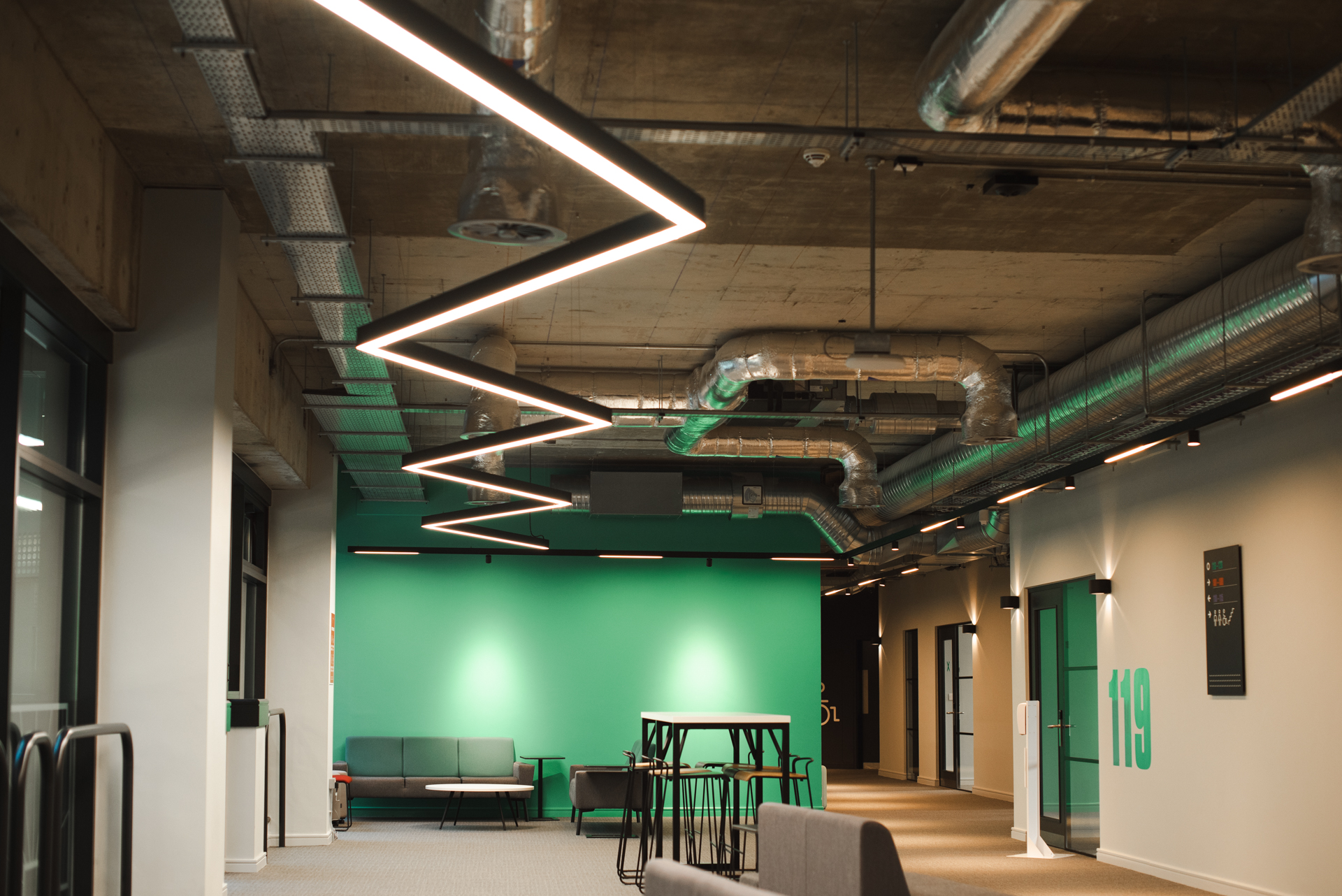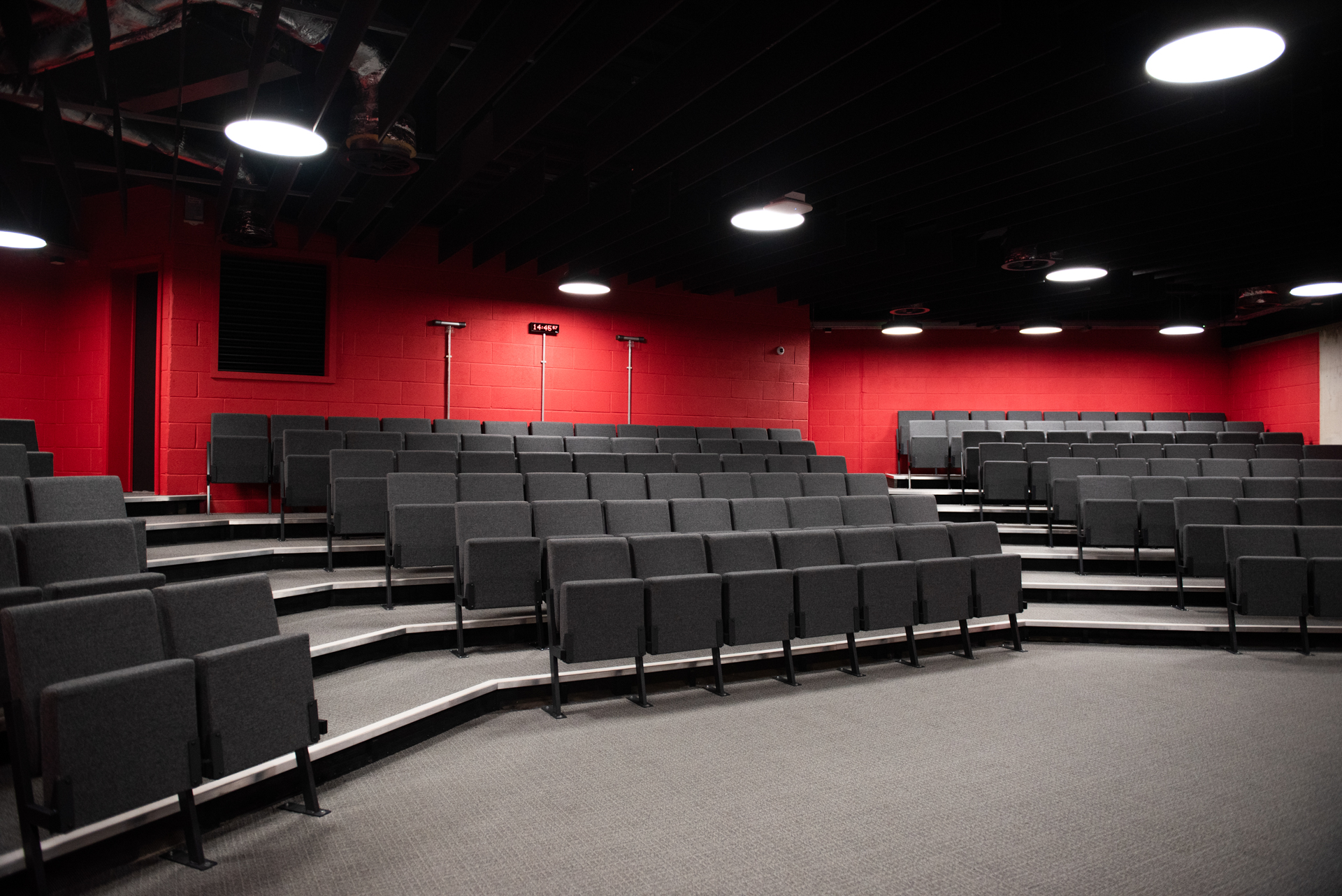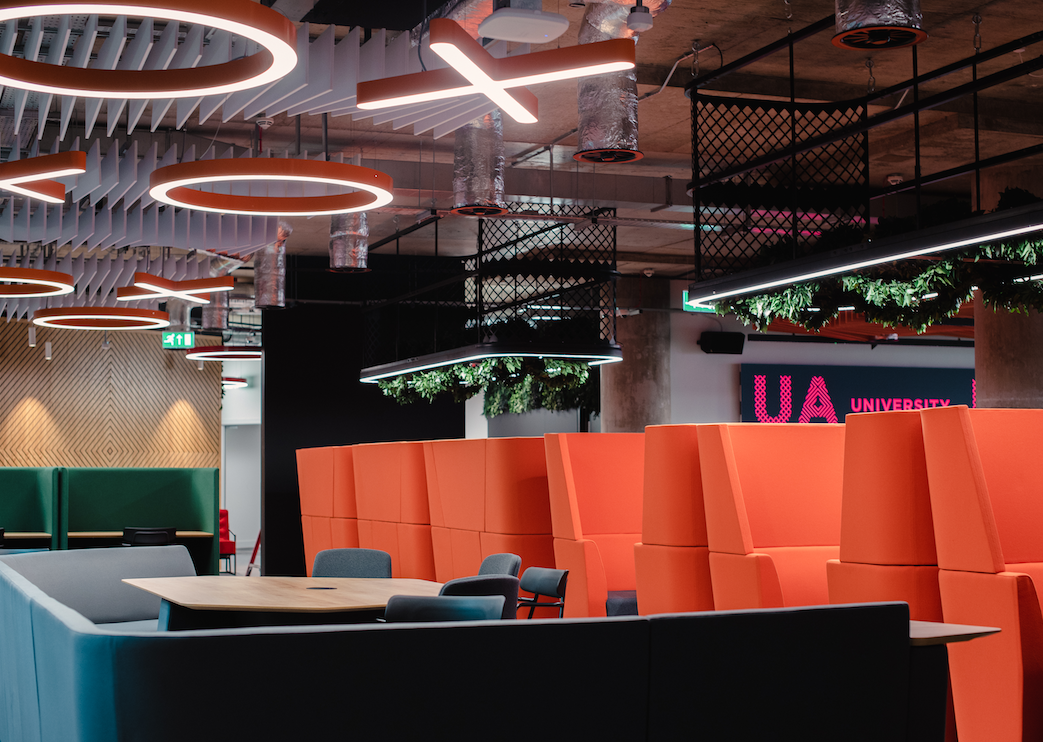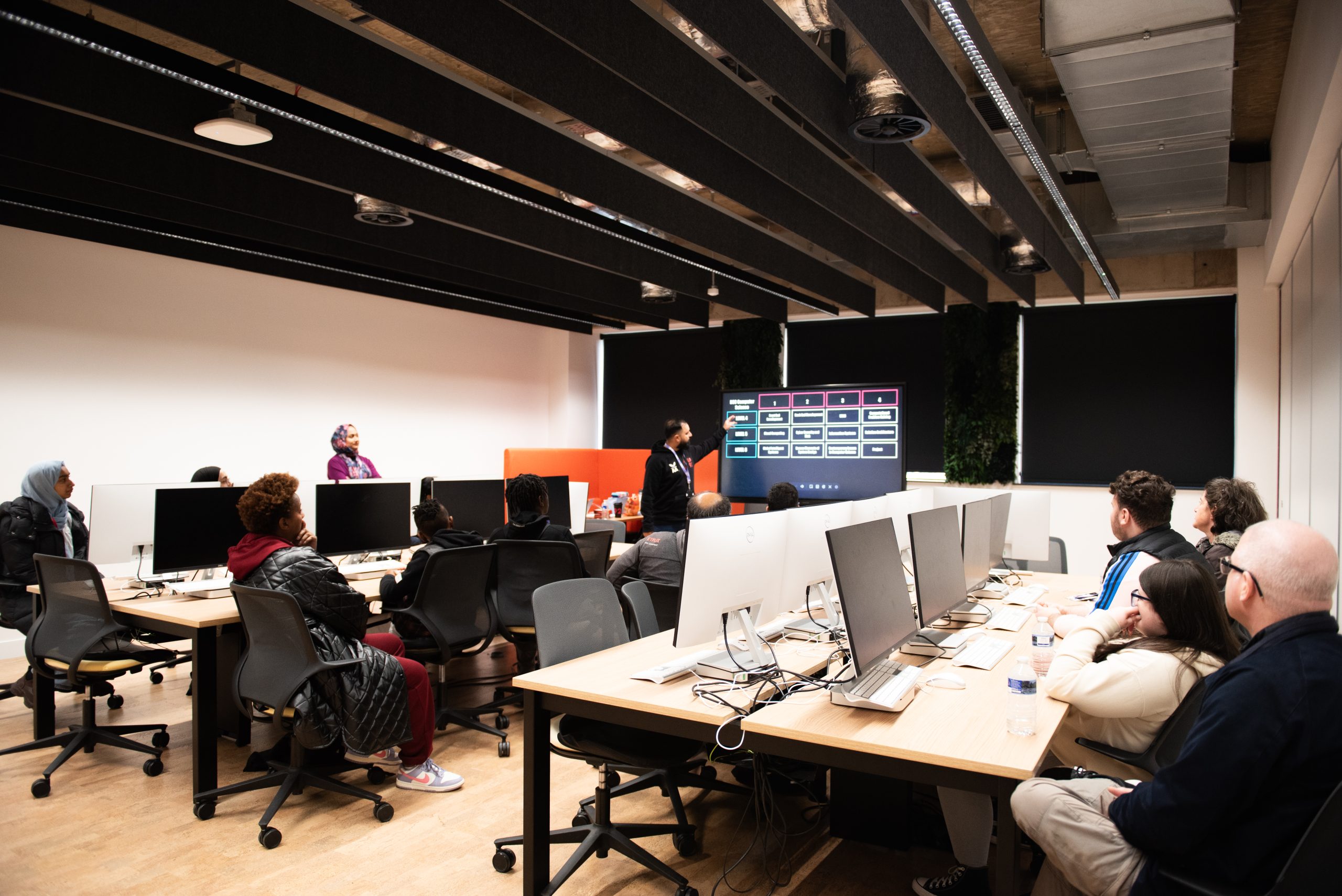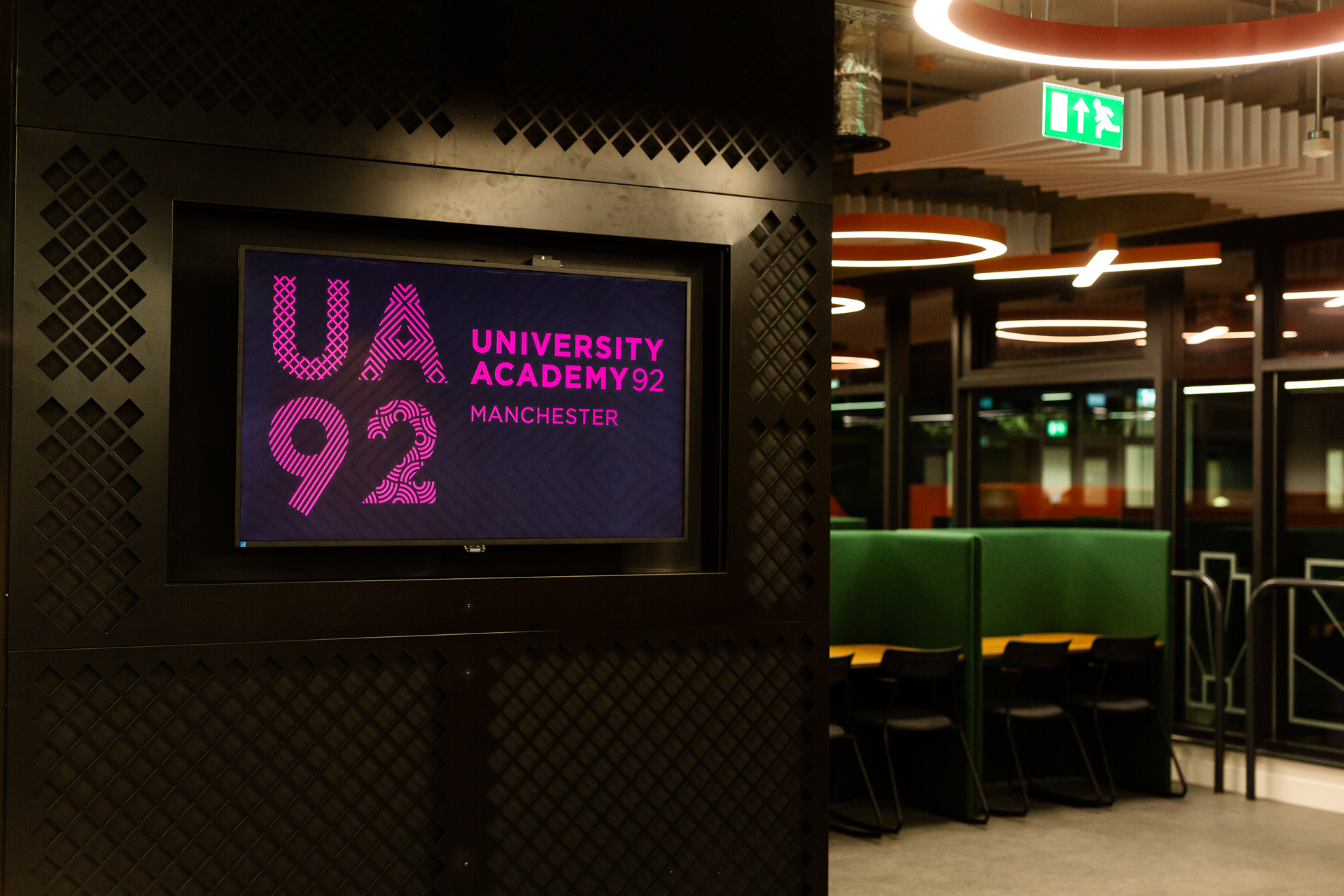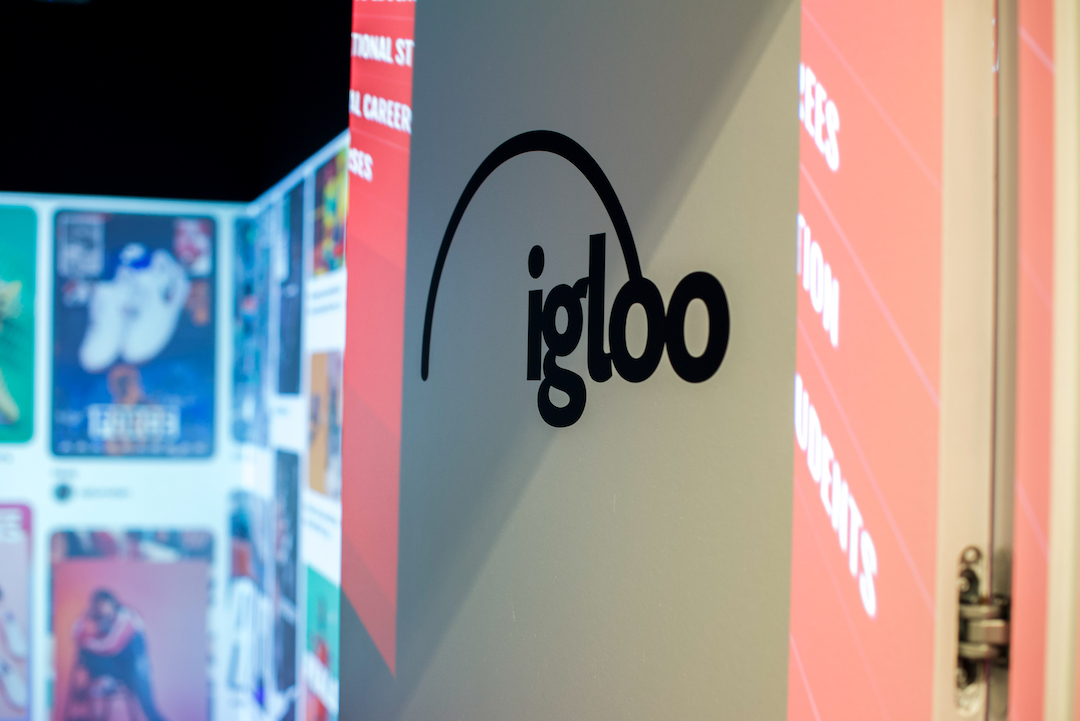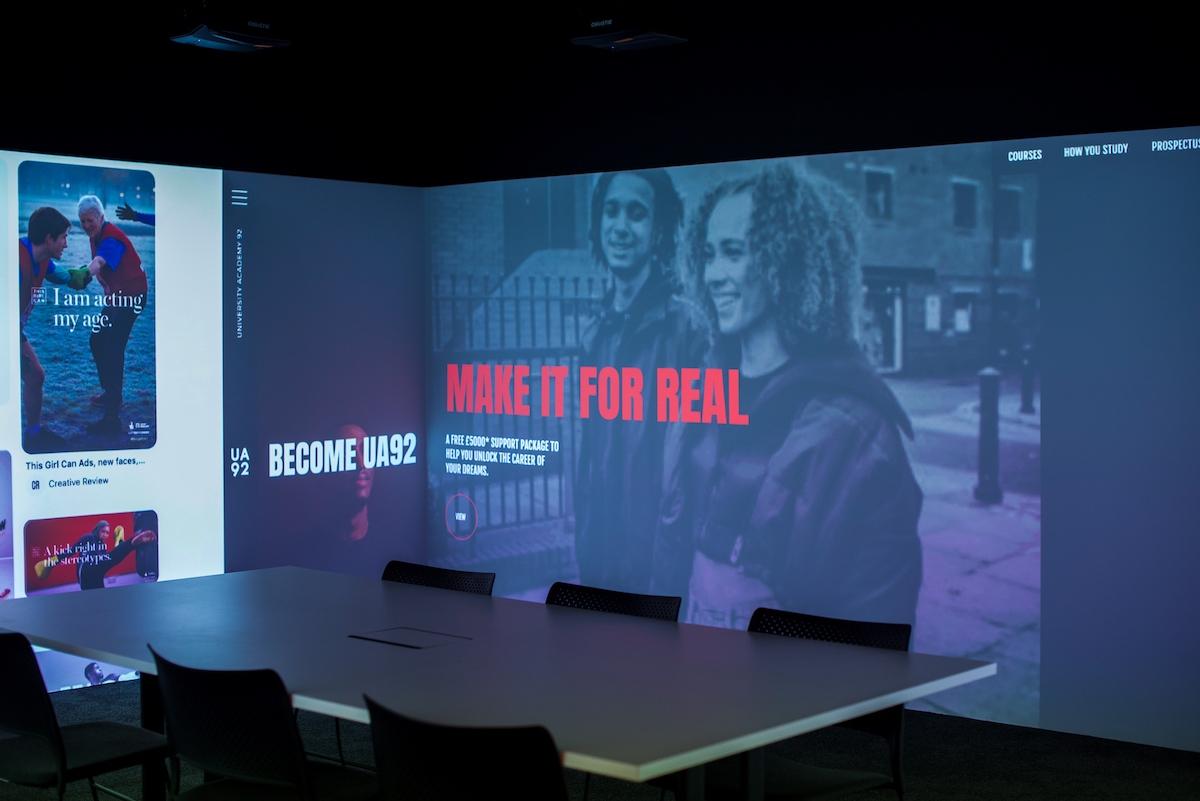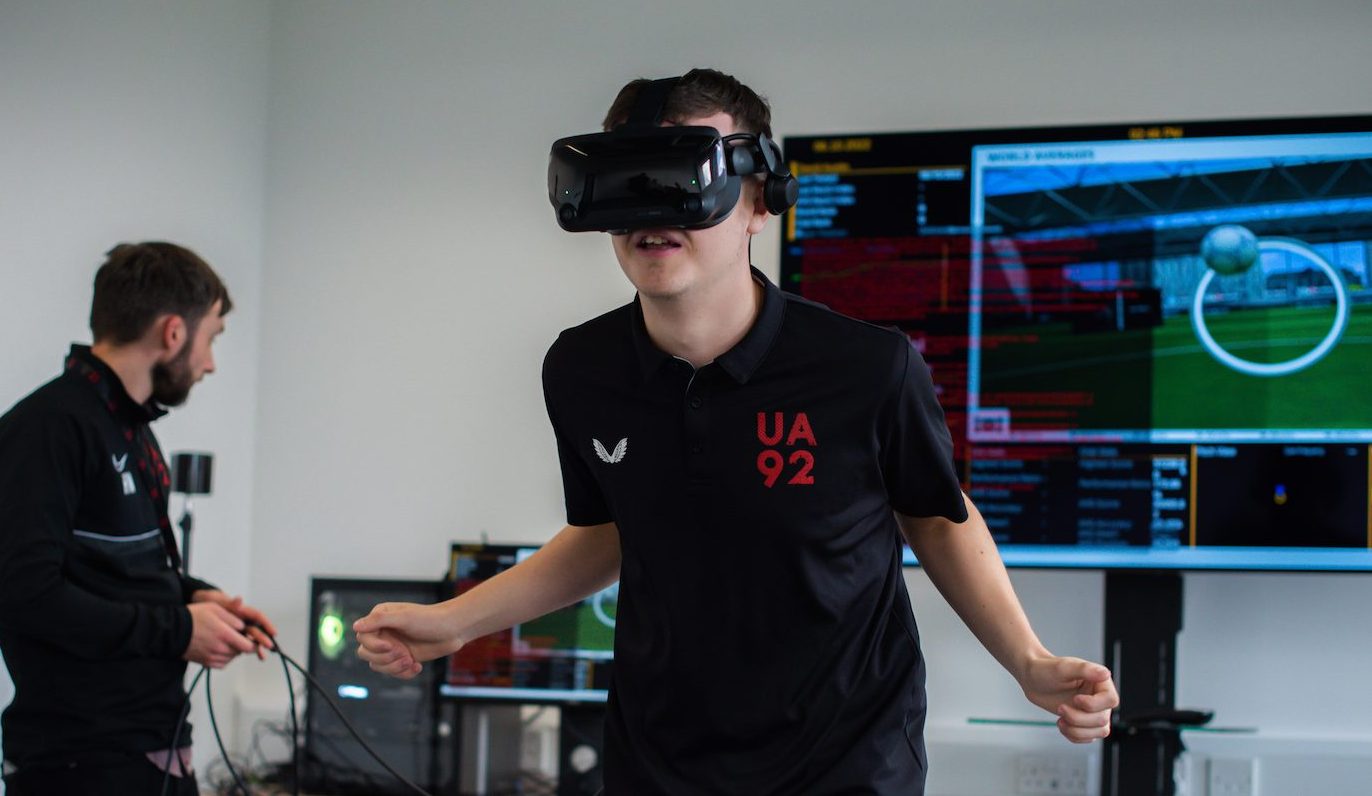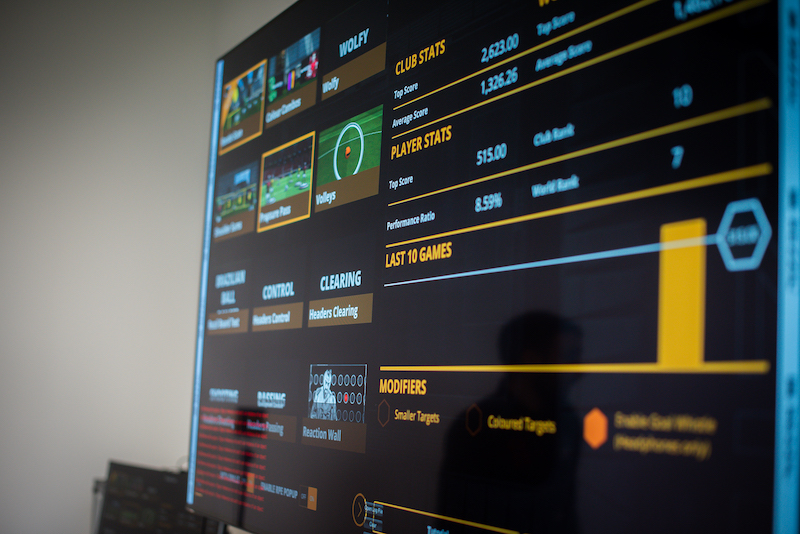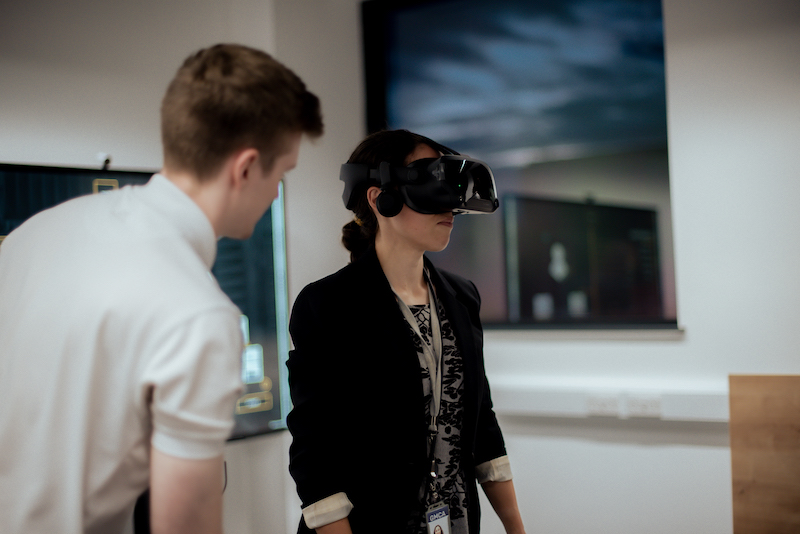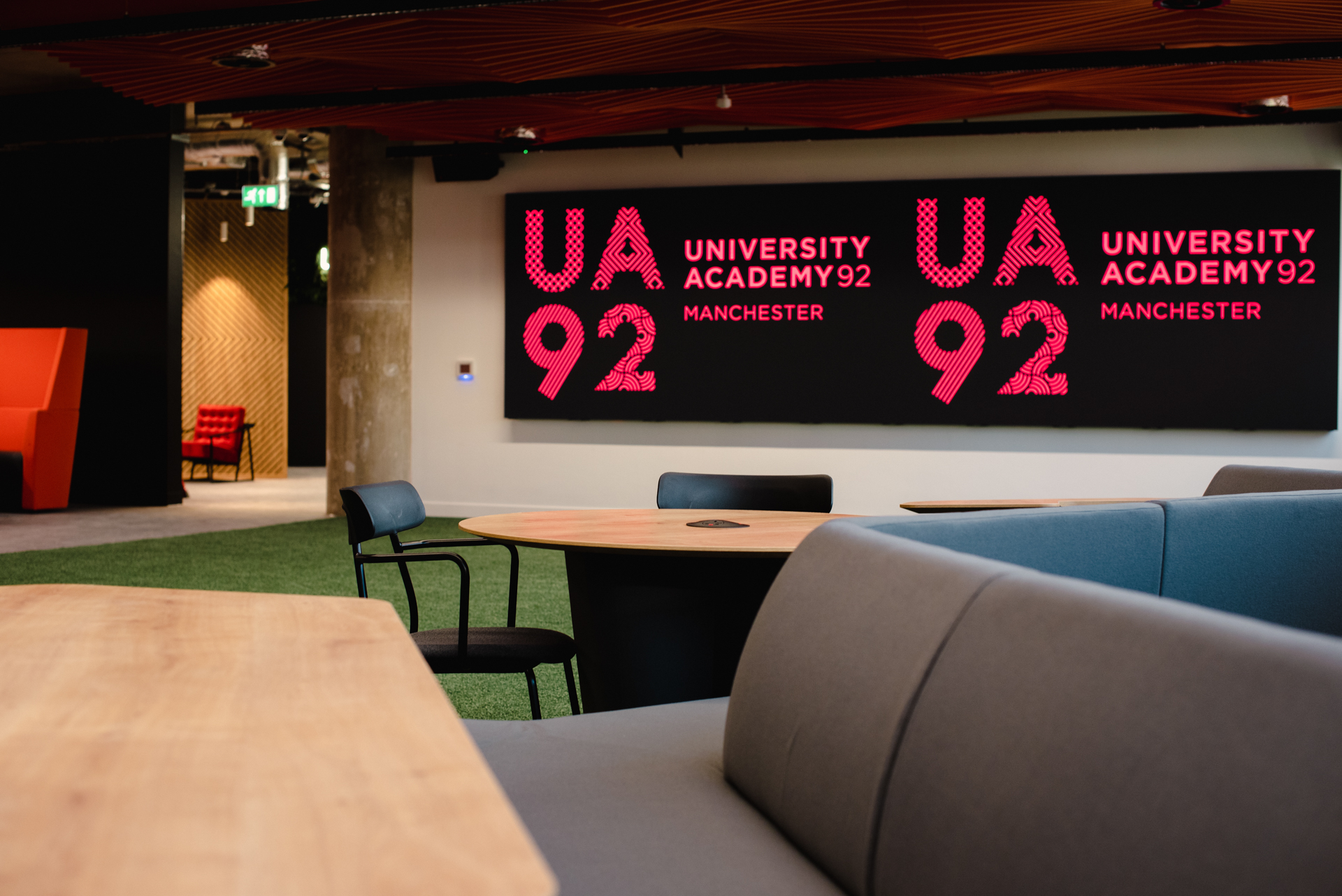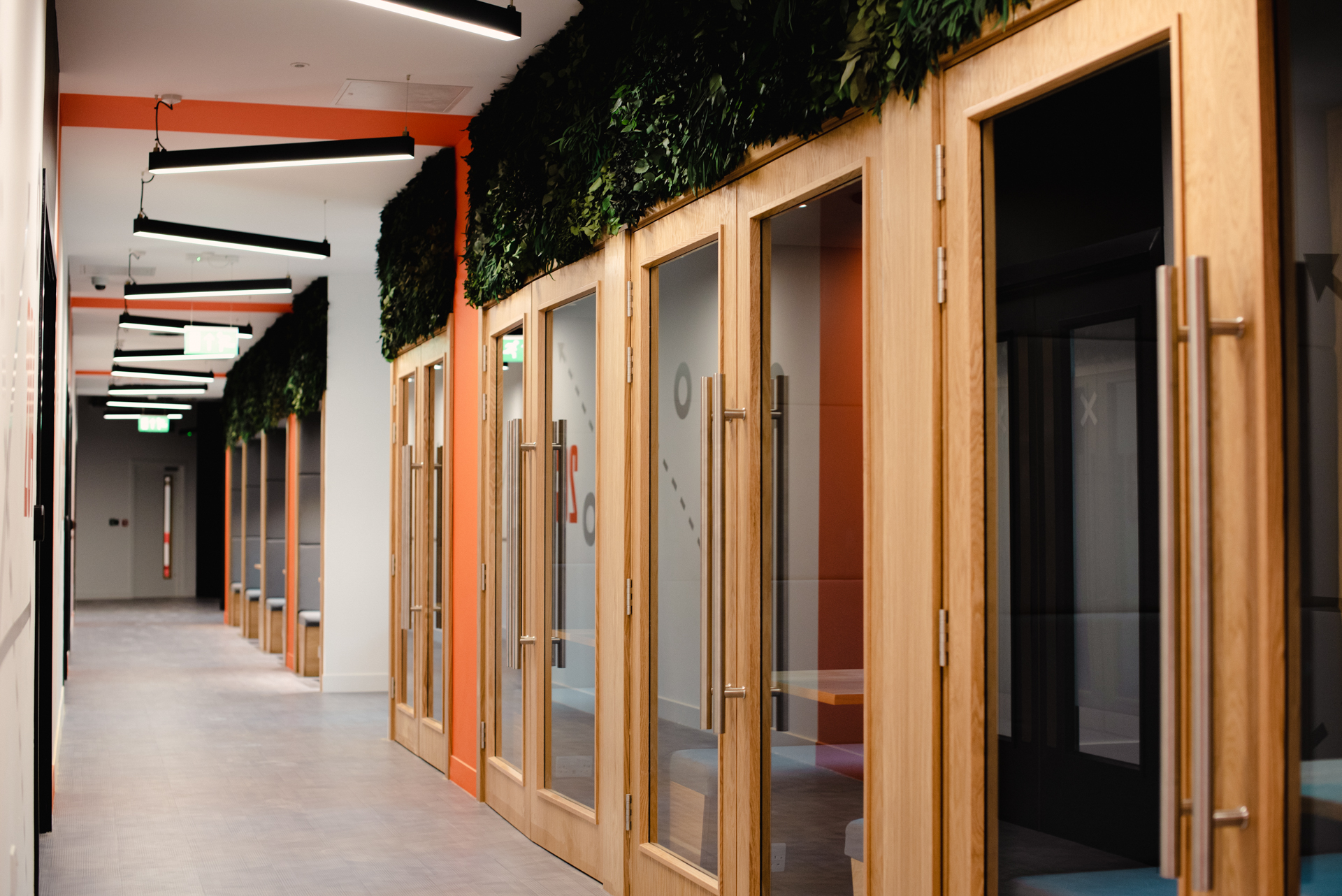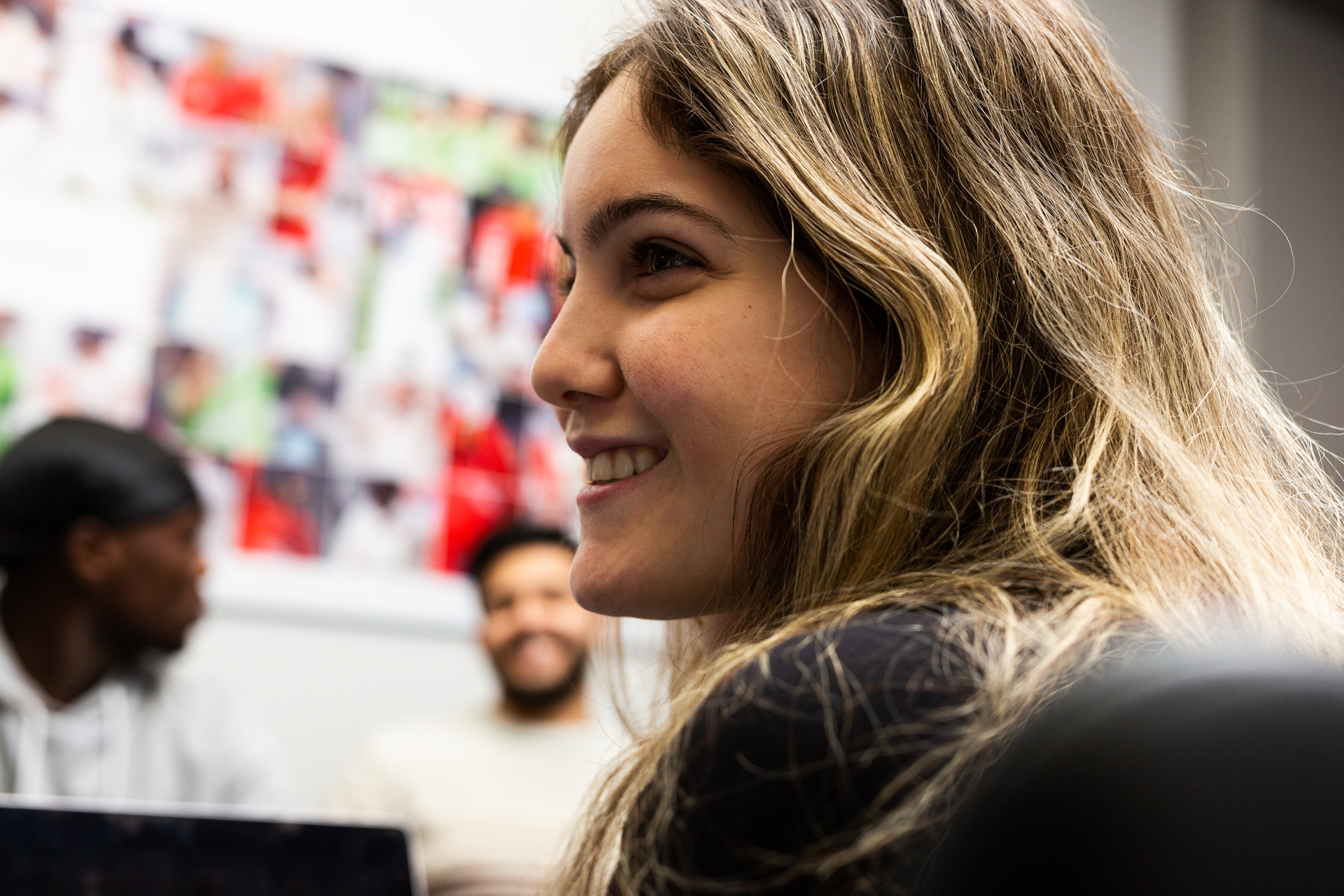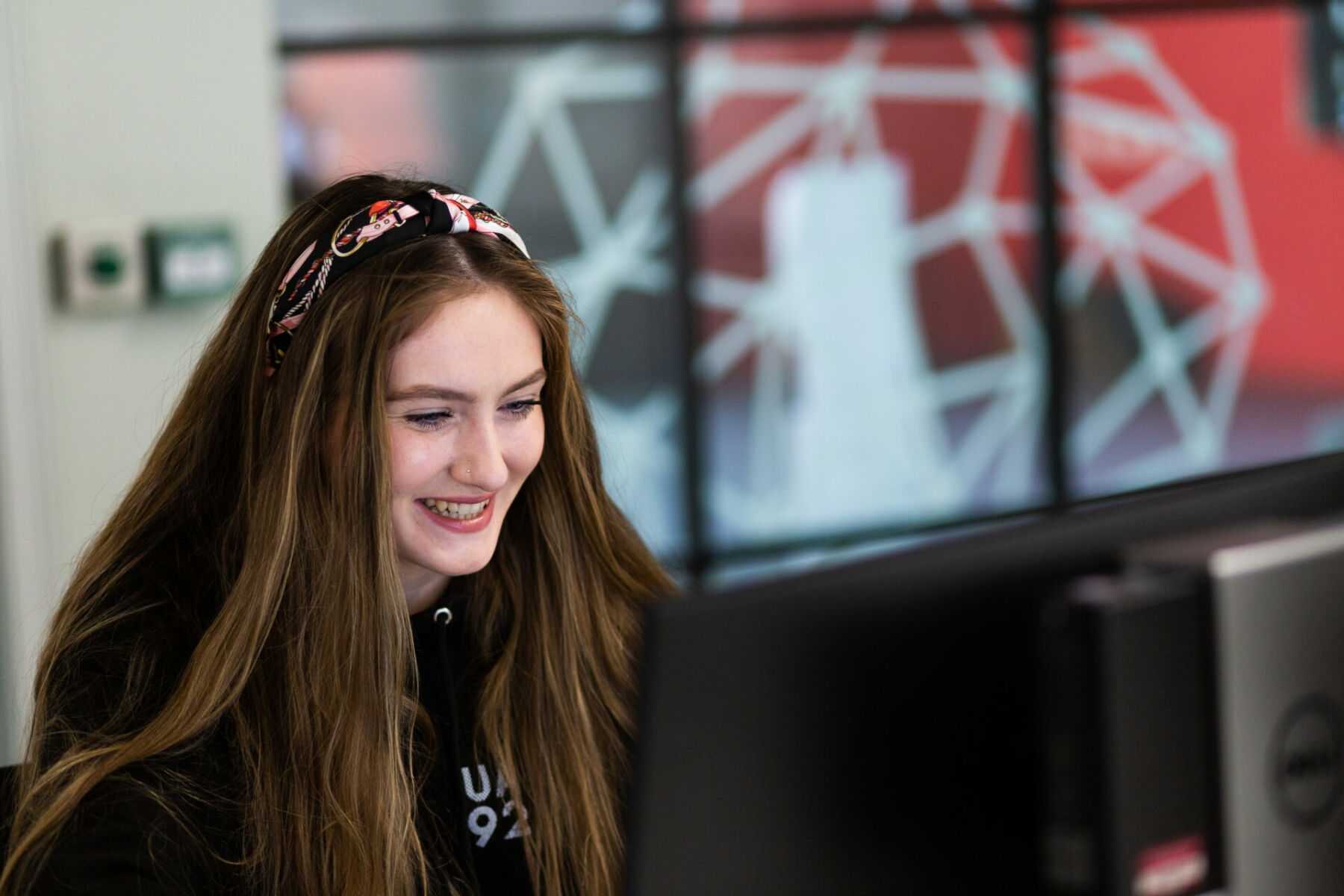As an accelerated Computer Science student, you will get the chance to gain additional professional, industry-recognised certifications alongside your degree study. These additional qualifications are often fully or part-funded and are a great opportunity to maximise your skillset for your future career. Examples of Professional Certificates that students have completed include AWS Cloud Certified Practitioner, CompTIA Data+ and Cisco CCNA.
OVERVIEW
STUDY LEVELS
BA (Hons) Accelerated
UCAS CODE
C622
DURATION
2 Years
START DATE(S)
Sep / Jan / Apr
ENTRY YEAR
2024/25
ENTRY REQUIREMENTS
104*

What you will learn
Co-designed by Microsoft, this 2-year course covers all the same content as the 3-year BSc, but quicker! It gives you access to new and emerging technologies and means you’ll always be bang up-to-date with the latest developments.
With a strong emphasis on core programming skills and applying them to real-life scenarios, this jam-packed Computer Science degree takes you through the fundamentals of front- and back-end development and covers core programming languages including JavaScript, Python, PHP and SQL. You’ll get to grips with The Cloud and AI, and learn how to identify and address cyber security risk.
There will be opportunities to build your own web applications and complete a big project to deliver a quality solution to a real-world problem.
If you’re looking for a fast-track Computer Science degree in Manchester, check out our accelerated BSc (Hons) degree in Computer Science and unlock your greatness at UA92.
Professional Certifications
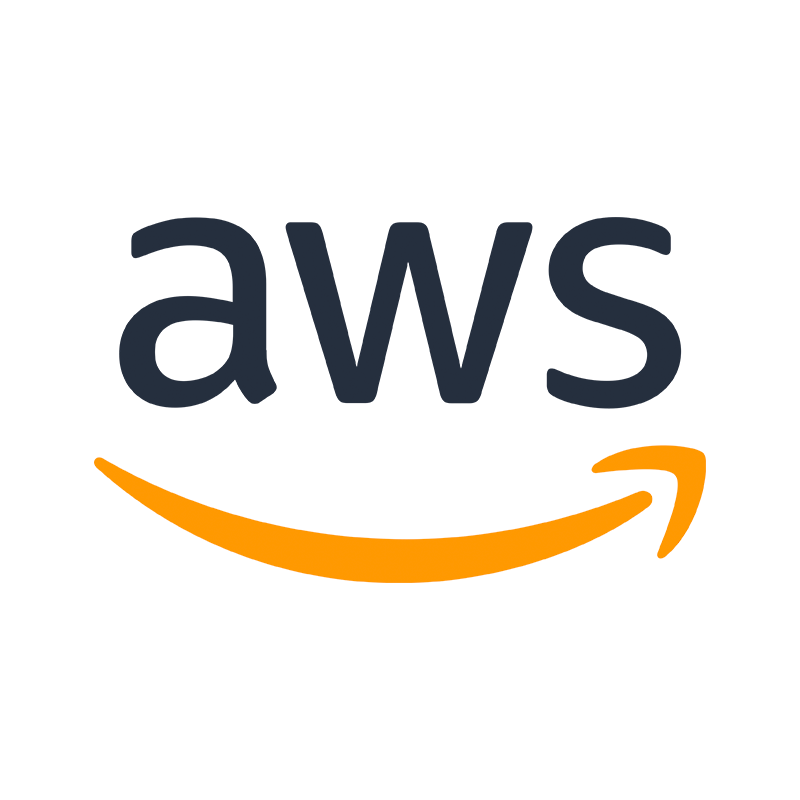
AWS Cloud Certified Practitioner
The AWS Certified Cloud Practitioner validates foundational, high-level understanding of AWS Cloud, services, and terminology.
How You Will Study
Course
breakdown
36 weeks of
study per year
6 x 6-week blocks
1 subject module per block
4 CPD focus days per block
Subject Module
Breakdown
250 hours of
study per module
80 hrs face-to-face (32%)
20 hrs Digital Wednesdays (8%)
150 hrs independent study (60%)
Assessment
Breakdown
No traditional
end-of-year exams*
Year 1 – 100% coursework*
Year 2 – 100% coursework
*there will be one short exam in the module Computational Problem-Solving.
Your course modules
Module 1 - Front End Development
You’ll get to grips with HTML, CSS and JavaScript, learning how to design and build a website based using a real-world scenario.
Module 2 - Back-End Development
You’ll take an in depth look at Webservers, that form the backbone of the Internet. You’ll gain an understanding of Linux system management, PHP programming language, Structured Query Language (SQL) and database development theory; whilst building a database-based webserver app hosted on a Linux based server.
Module 3 - Software Design
You’ll take a look at how software systems are developed from inception to delivery and testing. You’ll learn about both traditional software development lifecycle and agile methodologies as well as complete a group design assignment to simulate a workplace team working environment.
Module 4 - Computational Problem-Solving
You’ll develop the skills to devise efficient algorithms and undertake practical exercises implementing algorithms in the Python programming language. You’ll also learn how to interpret, and more importantly, present data.
Module 1 - Cloud Computing
You’ll study the Cloud; a defining technology of this decade. You’ll have the opportunity to get hands on and develop a Cloud based solution and understand the methodology required to devise a strategy for such solutions.
Module 2 - Cyber Security and Risk
You’ll learn how to identify and mitigate risks and how to build systems that are resilient and robust to threat, using cyber security principles. You’ll focus on the management SQL injection attack and how to mitigate Denial of Service attacks.
Module 3 - Information Systems
You’ll study advanced SQL programming, gaining an in depth knowledge about database technologies used to implement information systems. You’ll also look at the formal processes for documenting system requirements that are used to generate the code.
Module 4 - Solution Architecture
You’ll get to grips with how TOGAF (The Open Group Architecture Framework) is employed by organisations, and alternatives such as Zachman. You’ll develop your architectural knowledge, an essential skill when joining a large corporate employer.
Module 1 - Global Intelligent Systems
You’ll gain an understanding of Artificial Intelligence (AI) concepts; you’ll cover machine learning, neural networks, with guided practical assessment using Python based API’s.
Module 2 - Human Elements of System Design
You’ll get a solid grounding in user interface principles; discover why developing a system that practices good user design principles is essential for any computing system, public facing website, or internal corporate system.
Module 3 - Contemporary Issues in Computer Science
You’ll take a look at some of the most contemporary issues within Computer Science, such as remote working, automation and automated transport; understanding how ethical and legal issues can impact on the process of information systems development.
Module 4 - Final Project
You’ll undertake a large-scale project based on an actual computing workplace brief. You’ll draw on your knowledge and skills to to deliver a comprehensive, quality solution to a real-world computing problem.
What is the 92 Programme?
Alongside your subject modules, you will complete the 92 Programme.
Engaging with the 92 Programme is a requirement for all students and will count towards your overall grade.
In each block, you will take part in a number of Character and Personal Development focus days. During these focus days, you will complete activities designed to boost your mindset, develop your skillset and get you set for future career success.
Throughout the 92 Programme, you will develop skills in self-reflection and awareness, wellness and resilience and professionalism and employability, as well as upskill in different areas.
Find out more about how we prepare students for future career success.
Why the 92 Programme is part of your course?
In a recent study*, 78% of employers believe graduates do not arrive in the workplace fully equipped with the skills they need to be work-ready.
Another study conducted by the World Economic Forum** identified ‘10 Skills You Need for the Future of Work’. These skills include:
- Emotional intelligence (EQ)
- Analytical (critical) thinking
- Active learning with a growth mindset
- Interpersonal communication skills
- Leadership skills
- Technology skills
At UA92, we prepare you for life after graduation and equip you with the skills employers value most. You may not realise it, but developing these skills now, will get you set for career success and could land you that dream job in the future.
*CMI Report: Work Ready Graduates
**World Economic Forum: The Future of Jobs Report 2023
How is the 92 Programme assessed?
You will produce a learning journal that will document your experiences. This will be submitted at the end of each academic year (or level of study) to assess whether you have met the required standard to pass the module.
UA92 scored higher than all Greater Manchester Universities for Teaching, Academic Support, Mental Health Support Services and Assessment and Feedback in the National Student Survey 2023.*
THIS COURSE IS TAUGHT AT
Old Trafford Campus
This is where our story began, back in 2019. The UA92 Campus is in the heart of Old Trafford, Manchester. Inside there’s a fully equipped Sports Performance Centre, Media Studio and Digital Academy. The tram stop is a 1 minute walk, which gets you into the heart of Manchester city-centre in under 10 minutes.
FIND US
UA92 Old Trafford Campus
Brian Statham Way
Old Trafford
Manchester UK
M16 0PU
The Digital Academy at UA92
My UA92 Journey: Computer Science
What’s next for a Computer Science graduate?
Rooted in the real world and driven by industry innovation, our accelerated Computer Science degree will set you up a fast-paced career as part of the next generation digital workforce.
You’ll develop the tools to succeed in various roles, including software developer, software engineer, computer programmer, computer technician, app developer or web designer.
Doing a Computer Science degree in Manchester, you’ll be surrounded by innovation and tech, and benefit from connections and opportunities with exciting industry partners.
Computing roles are some of the most in-demand and highest-paying jobs around, with an average salary for computer science roles in Manchester of £47,500.
Industry Partnerships
We have over 60 industry partners who support our mission to develop career-ready graduates. These partnerships provide you with access to industry-leading expertise, mentorship opportunities and work-place experiences.
Our industry partners play a vital role in shaping both the curriculum you study and your student experience. From delivering guest lectures and masterclasses to providing internships and graduate roles. Here are just some of our partners:
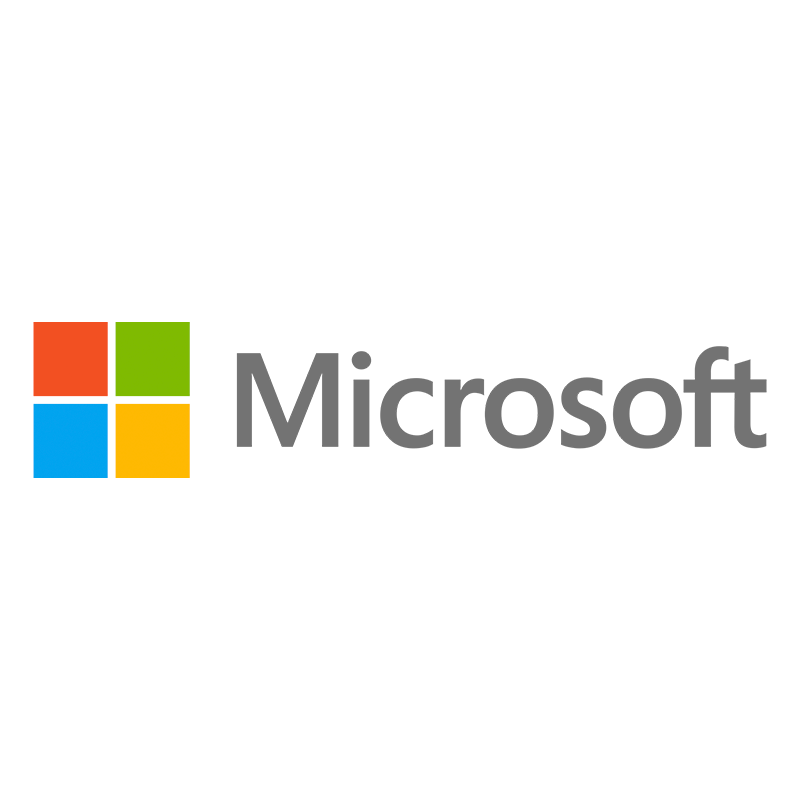
Microsoft
Microsoft is based in 190 countries with 220,000 employees, including a North of England base at the UA92 campus. Microsoft teams work closely with UA92 to deliver insight, training and employability sessions.
Meet the Computer Science Team
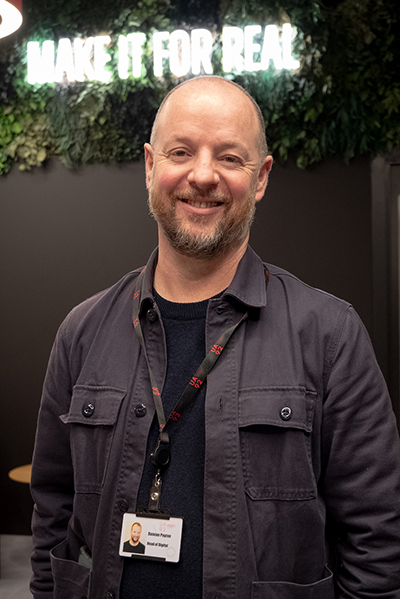
Damian Payton
Head of Digital
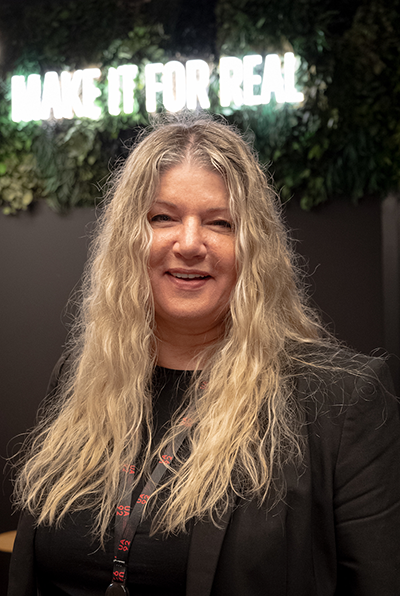
Steph Riley
Senior Lecturer
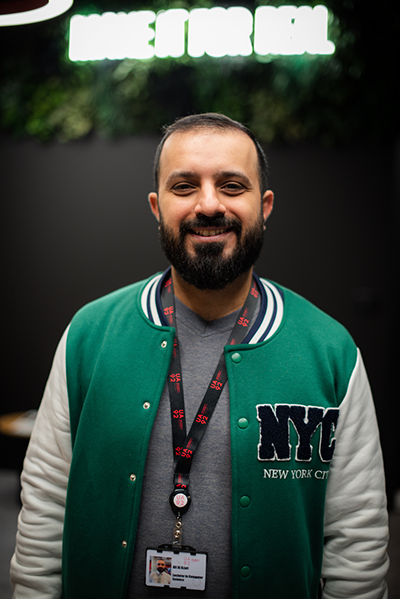
Ali Alizari
Senior Lecturer
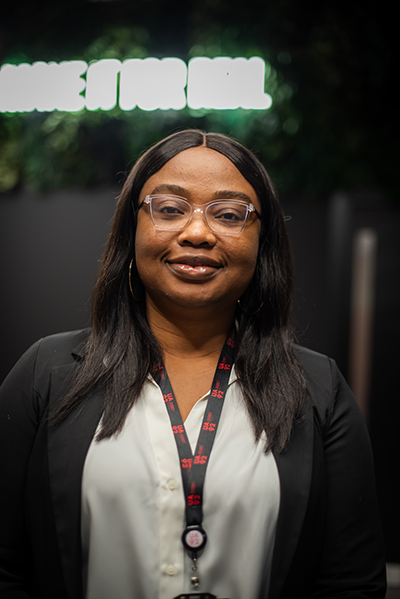
Ngozi Nneke
Lecturer
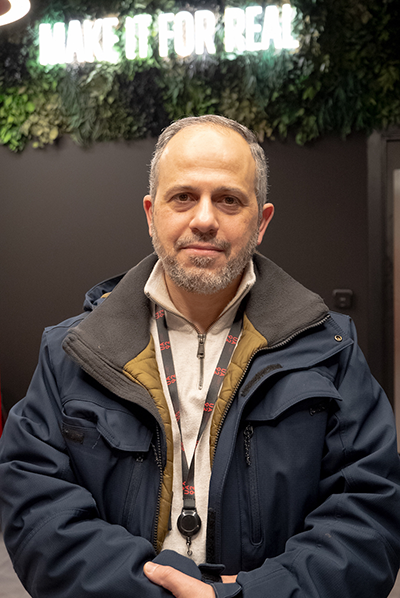
Omar Ailobadi
Lecturer
ASK OUR DIGITAL STUDENTS
Our friendly ambassadors are ready to answer your questions. Click on the ‘Ask me a question’ button to start a conversation.
*The NSS results referred to above compares UA92’s results against the 4 Universities in Greater Manchester (University of Bolton, Manchester Metropolitan University, Salford University and The University of Manchester). Teaching, Assessment and Feedback and Academic support refers to the average score across all questions in these themes. Mental health support services refers to question: How well communicated was information about your university/college’s mental wellbeing support services?
**There may be exams in some subject areas, but we avoid this where possible. Any exams will be undertaken at the end of the module instead of at the end of the academic year.
*** If you start in February, April or June or as an accelerated student, we can’t guarantee your timetable will be fixed am/pm throughout your studies.
ENTRY REQUIREMENTS
The standard entry requirements for the accelerated BSc (Hons) Computer Science course is 104 UCAS points.* However, each application is assessed on an individual basis, taking into consideration a wide range of factors. Depending on your personal circumstances, and in line with our Contextual Admissions Policy, your application may still be considered if you have less than 104 UCAS Points. Alternatively, we have other courses that we can offer. If you would like to know more about applying to UA92 or have any questions about our entry requirements, please contact our Student Futures Team.
LEVEL 2
- 5 GCSEs at Grade C/4 or above including English Language and Maths
- Accepted Alternatives: Functional Skills Level 2 (English and Maths)
LEVEL 3
- UCAS Points: 104
- A Levels: BCC (104 equivalent)
- BTEC National Extended Diploma: DMM
- BTEC Diploma: D*D
- T Levels: M
- Scottish Advanced Highers: AB
- IB: 28 points with 14 from Higher Level Subjects
NON-TRADITONAL
Some qualifications do not carry UCAS Tariff points but may still be considered. We take into account a range of qualifications and work/life experience that can demonstrate your ability to succeed on the course. Each application is assessed on an individual basis, taking into consideration a wide range of factors.
INTERNATIONAL
International Baccalaureat
Pass the IB Diploma with minimum 28 points overall, with 14 points from Higher Level Subjects.
English Language Requirements
In addition to meeting the academic criteria, if your first language isn’t English, you may be asked for a recognised English language qualification. This is especially important if you are not a national of a majority English speaking country or you haven’t completed a degree in English. If you are an international student, in order to obtain a student visa, you will be required to demonstrate that you have the correct level of English language competency to study in the UK.
- IELTS: Overall score of 6.5, with no section lower than 5.5
FEES AND FINANCE

 World of Business
World of Business  World of Digital
World of Digital  World of Media
World of Media  World of Sport
World of Sport 